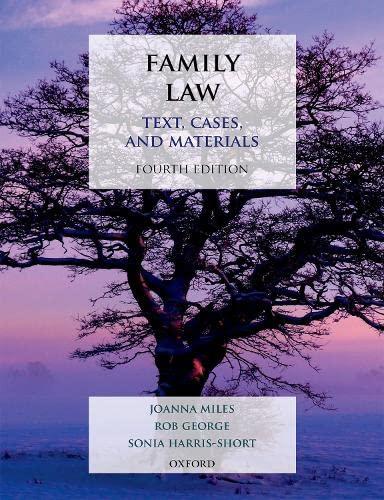Answered step by step
Verified Expert Solution
Question
1 Approved Answer
This is TRUE/FALSE questions. Today, threats to economical interests can result in a claim of duress. In general, the identity, existence, quality, and value of
This is TRUE/FALSE questions.
- Today, threats to economical interests can result in a claim of duress.
- In general, the identity, existence, quality, and value of an item are not "basic assumptions.''
- A debtor's offer to settle a $25,000 debt for $1000 on a take it or leave it basis with knowledge that the creditor is in extreme financial trouble, is not economic duress.
- All persuasion contracts between parties in a fiduciary relationship, are automatically undue influence, and therefore unenforceable.
- As a general rule, statements of opinion regarding quality or value are not grounds for rescission.
- Once someone has been declared mentally incompetent by a court, any contracts they later enter into are void
- In general, after disaffirming a contract a minor must return any consideration still in the minor's possession.
- A minor may not enter into a contract.
- A minor, after reaching majority, can disaffirm a contract at any time.
- A fully emancipated minor cannot disaffirm a contract.
- Ratification requires a specific and detailed letter indicating acceptance of the contract.
- Food, clothing and shelter are always "necessaries."
- If the only purpose of a contract is to restrain competition, the contract violates public policy and is illegal.
- Exculpatory clauses are never enforceable.
- The only time a minor can disaffirm a contract is after reaching the age of majority.
- While potentially enforceable, contracts that limit competition are disfavored by courts.
- Both Regulatory and Revenue raising licensing statutes are designed to protect the public.
- A minor normally is permitted to disaffirm a contract for the purchase of necessaries but remains liable for the reasonable value of the goods.
- A person seeking to rescind a contract based on intoxication needs to show that he or she was so intoxicated as to fail to comprehend the legal consequences of entering into the contract and the other person was aware of his intoxication.
- Stanley, a minor, goes to a jewelry store to buy an expensive present. The store clerk asked Stanley if he was 18. Stanley lied and said he was 23. The clerk sold the jewelry to Stanley. Stanley later wants to disaffirm. Under modern law, it doesn't matter what state the store is located, Stanley can disaffirm the contract.
- If the purpose of a licensing statute is to raise revenue, a contract entered into with an unlicensed professional normally will still be enforced.
- Statements not to compete are never enforced because they are unreasonable restrains on trade.
- An agreement between two businesses whose sole purpose is not to compete with each other will generally not be enforced.
- A covenant (an agreement) not to compete will generally be enforced if it is reasonable with respect to duration, scope, and geographical area.
- A covenant not to compete that is part of an employment contract and is reasonable with respect to time, place and scope, will generally be enforced.
- An exculpatory clause in a gym membership contract is never enforceable.
- A liquidated debt is a debt where there is a good faith dispute as to the existence or amount of the debt.
- Promising to do something you already had a duty to do, is not consideration.
- Max purchases a motorcycle while still a minor and continues to maintain it and operate it for six months after reaching majority. Most courts would consider this action an implied ratification.
Step by Step Solution
There are 3 Steps involved in it
Step: 1

Get Instant Access to Expert-Tailored Solutions
See step-by-step solutions with expert insights and AI powered tools for academic success
Step: 2

Step: 3

Ace Your Homework with AI
Get the answers you need in no time with our AI-driven, step-by-step assistance
Get Started


